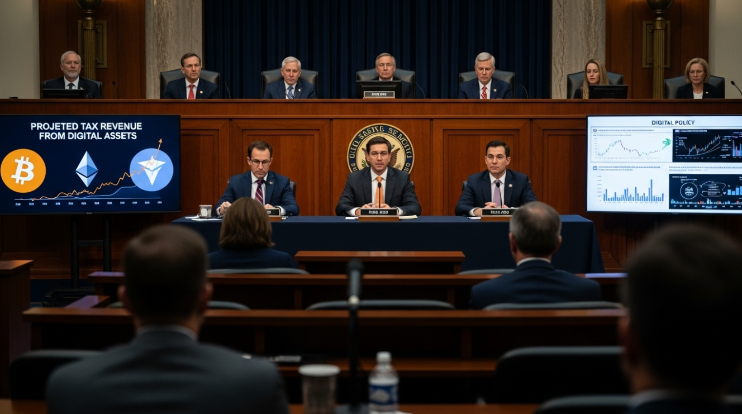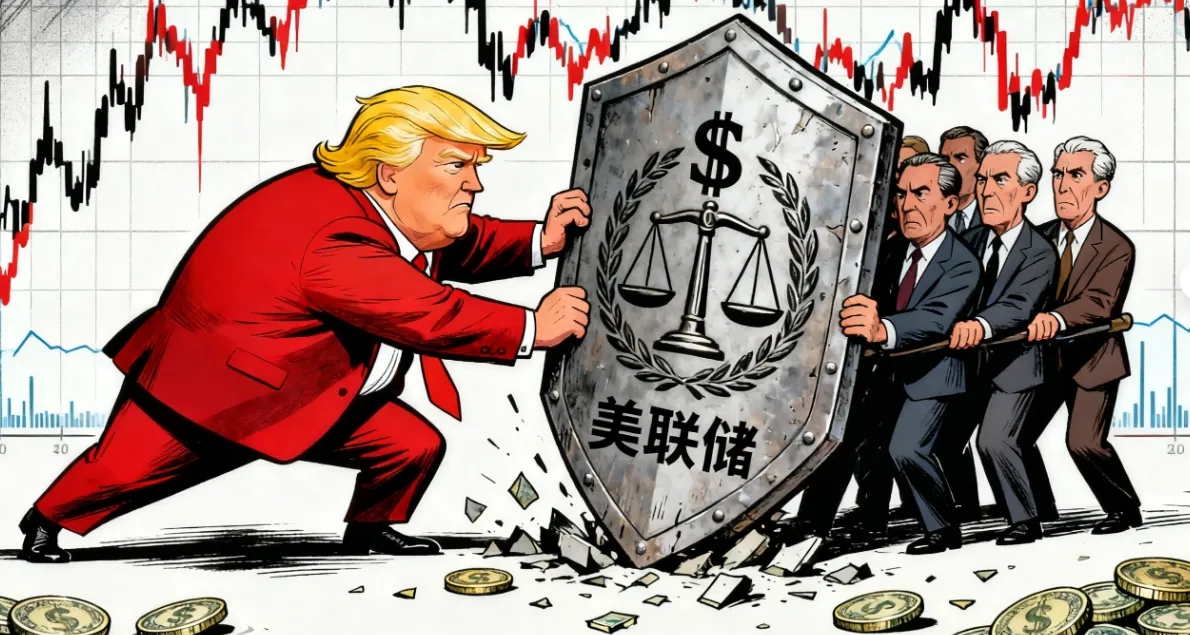I. Event Background: A Key Hearing Impacting the Global Digital Asset Market
Against the backdrop of the ongoing evolution of the global digital asset market and the urgent need for regulatory frameworks, the U.S. Senate Finance Committee has announced a highly anticipated hearing scheduled for October 1, 2025, focusing on the reform direction of digital asset tax policies. Led by Committee Chairman Mike Crapo, this meeting is not only seen as a crucial part of the construction of the U.S. cryptocurrency regulatory system but may also become an important node influencing the development pattern of the global digital economy. With the total market value of digital assets surpassing one trillion dollars and the user base continuing to expand (with approximately 50 million investors estimated in the U.S. alone), the clarity and reasonableness of tax policies are directly related to market stability, investor rights protection, and the maintenance of national innovation competitiveness.

II. Why Has the Tax Issue Become the "Core Pain Point" of Digital Asset Regulation?
Digital assets have rapidly risen from marginal innovation to a core force in global finance, profoundly challenging traditional tax systems with their anonymity, cross-border convenience, extreme volatility, and multiple functions (such as payment, investment, and tokens). Although the U.S. Congress has passed legislation such as the Stablecoin Act (GENIUS Act) and the Market Structure Act (CLARITY Act) to establish a regulatory framework for issuance and trading, the tax domain remains filled with ambiguity and enforcement challenges. The existing Internal Revenue Code (IRC) was established before the rise of digital assets and cannot adapt to scenarios such as mining rewards, staking income, airdrops, and forked coins, leading to high compliance costs for taxpayers and difficulties for tax authorities in enforcement. The 2021 Infrastructure Investment and Jobs Act expanded the definition of "broker," potentially including miners, validators, and developers under reporting obligations, which sparked backlash from the industry due to its poor operability and potential to stifle innovation.
Internationally, the EU's Markets in Crypto-Assets Regulation (MiCA) aims to unify rules across 27 countries, while Singapore and Switzerland attract projects with flexible regulations, and Germany exempts long-term holders of crypto assets from taxes. If the U.S. falls behind in tax optimization, it risks losing ground in global regulatory competition, exacerbating capital and talent outflows.
III. Core Controversies of the Hearing: Policy Games and Practical Challenges
This hearing will focus on the core controversies surrounding digital asset taxation, which directly affect the operational costs and compliance strategies of market participants, involving policy games and practical challenges. Timing of income recognition: the debate between realization and cash basis
● Current Dilemma: The IRS's current guidance requires taxpayers to recognize income at fair market value when receiving token rewards from mining or staking (similar to the cash basis). This leads miners and validators to face the "phantom income" issue: tokens are not yet liquid or their prices are highly volatile, forcing taxpayers to pay taxes before realizing gains, amplifying cash flow pressure.
● Legal Ambiguity: The 2021 Infrastructure Act broadly defines "broker," potentially including mining pools, DAOs, and non-custodial wallet providers under information reporting obligations (such as Form 1099-B). These entities find it difficult to obtain user identities, making it technically unfeasible and infringing on privacy, conflicting with the essence of decentralization.
● Wash Sale Rule: Tax law stipulates that if a security is sold at a loss and repurchased within 30 days, that loss cannot be immediately deducted. Currently, this rule does not apply to digital assets (unless classified as securities). Expanding its applicability would impact the tax strategies of high-frequency traders and market fairness.
● Compliance Costs and Efficiency: Strict record-keeping and reporting for small transactions (such as micropayments and virtual goods purchases) or utility tokens often result in costs exceeding their value, wasting compliance resources and burdening taxpayers.
IV. Witness Lineup Analysis: Policy Recommendations from Diverse Perspectives
The four witnesses invited by the committee represent four key dimensions: policy research, legal practice, business operations, and accounting expertise. Their testimonies will provide lawmakers with comprehensive insights:
● Jason Somensatto (Policy Director at Coin Center): As a representative of the industry think tank, he is expected to emphasize the principles of policy fairness and technological neutrality.
● Andrea S. Kramer (Founder of ASKramer Law): A seasoned tax attorney will approach the fundamental issue of "attribute identification" of digital assets (Are they property, commodities, securities, or currency?) from a legal interpretation and compliance risk perspective.
● Lawrence Zlatkin (Vice President of Tax at Coinbase): As a representative of a leading trading platform, he will focus on the practical challenges faced in policy implementation, such as user privacy protection (how to balance information reporting with data security), system overhaul costs, and tax coordination for cross-border transactions.
● Annette Nellen (Chair of the AICPA Digital Assets Taxation Working Group): An accounting professional will emphasize enhancing tax collection efficiency and taxpayer compliance.
V. Global Perspective on Policy Competition and the U.S. Strategic Choice
Major economies around the world are accelerating their layout in the digital asset regulatory arena, with tax policy being one of the core competitive elements:
● European Union: The MiCA framework attempts to establish unified market rules; although member states have significant autonomy in tax matters, clarity in rules helps enhance market confidence.
● Germany: Exempts income tax on Bitcoin and Ethereum held for over a year, attracting long-term investors.
● Singapore: Offers tax exemptions on long-term investment income from payment tokens and encourages innovation through a "sandbox" mechanism.
● Japan: After early strict regulations, it has gradually adjusted to balance consumer protection and market development.
If the U.S. can promote clear, fair, and innovation-encouraging tax policies based on this hearing, it is likely to attract global capital and projects back, solidifying its leadership in financial technology. Conversely, if policies remain ambiguous or overly stringent, it may accelerate industry migration, marginalizing the U.S. in the emerging global digital asset governance landscape.
VI. Conclusion: A Glimmer of Hope, Ready to Take Off
The hearing on October 1 serves as a prelude to a policy storm, gathering the wisdom of Washington and the hopes of the industry. It is not only a clash of technology and law but also a crucial battle for the U.S. to seize the initiative in the digital economy competition. Regardless of the final legislative path, this event signifies that digital assets have deeply embedded themselves in mainstream finance, and tax reform is unstoppable. Investors, stay tuned— the next era of crypto gold may awaken from the chime of the Dirksen Senate Office Building.
Join our community to discuss and grow stronger together!
Official Telegram Community: https://t.me/aicoincn
AiCoin Chinese Twitter: https://x.com/AiCoinzh
OKX Benefits Group: https://aicoin.com/link/chat?cid=l61eM4owQ
Binance Benefits Group: https://aicoin.com/link/chat?cid=7JmRjnl3w
免责声明:本文章仅代表作者个人观点,不代表本平台的立场和观点。本文章仅供信息分享,不构成对任何人的任何投资建议。用户与作者之间的任何争议,与本平台无关。如网页中刊载的文章或图片涉及侵权,请提供相关的权利证明和身份证明发送邮件到support@aicoin.com,本平台相关工作人员将会进行核查。




